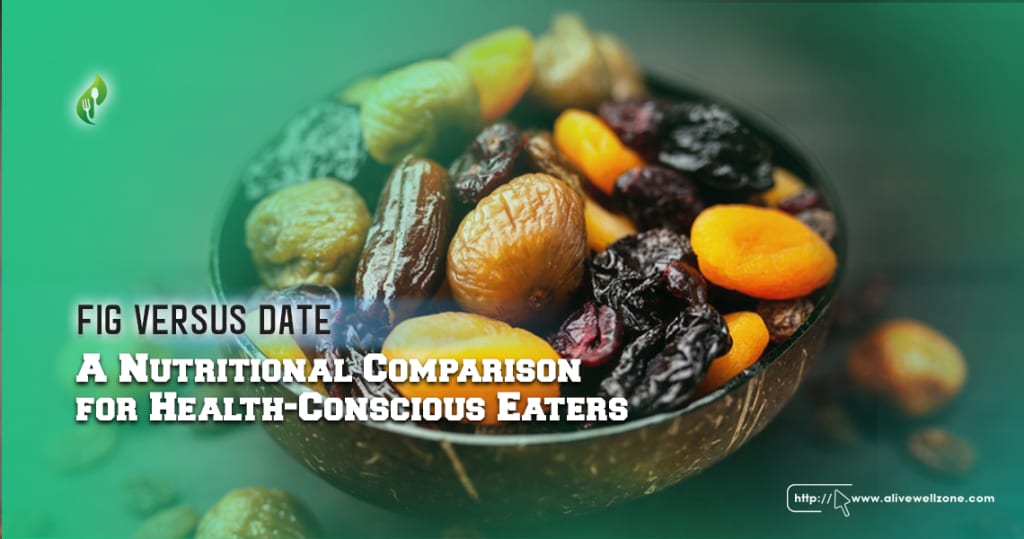
Craving something sweet, yet nutritious? Well, you can taste figs or even date. But when it comes to fig vs date, which is healthier when you have an insatiable sweet tooth? While both are sweet, dried fruits loaded with nutrients like fiber, potassium, and various antioxidants, there are some key differences.
Figs, lower in carbs, are keto-friendly and good for digestion. On the other hand dates, high in fiber, support brain health and natural labor. Both differ in calorie content and storage needs, making them distinct yet valuable dietary choices.
Stick with us as we’ll break down the fig and date showdown in detail. From health benefits, calories, carbs, and sugar content to vitamins, we’ll cover them all.
What Are Figs?
Figs, also called Ficus carica, are sweet, juicy fruits in the mulberry family. They’re one of the earliest fruits ever cultivated. In the Middle East, specifically Iran and Iraq, figs have a long and rich history. They were a staple for ancient Greeks, Egyptians, and Romans.
Nowadays, they are grown in various parts of the world, including the Mediterranean, Middle East, California, and some Asian regions. Figs flourish in warm, sunny climates with soil that drains well.
Origin of Figs
As we’ve already mentioned figs have a long history, being one of the first fruits ever grown by people. They originated in the warm regions of western Asia and the eastern Mediterranean, an area known for its rich history.
The fig tree, part of the mulberry family, has been around since ancient times, closely connected with cultures around the Aegean Sea and the Levant. Evidence from archaeological sites in the Lower Jordan Valley shows that people were cultivating figs as far back as 9400–9200 BC, in a place called Gilgal.
Besides, these fruits were highly valued in ancient writings, including the Bible, where they represented fertility, peace, and wealth. Figs have continued to be an important part of our diet, helping us remember that food is a connection with our ancestors.
What are the Health Benefits of Figs?
Following are some of the major advantages you can get from eating figs.
Digestive Health: Figs are high in fiber, acting like a natural probiotic and laxative. This fiber feeds beneficial gut bacteria and aids in regular bowel movements, removing the need to wonder are dates or figs better for constipation.
- Blood Pressure Control: The fiber in figs helps balance sodium-potassium levels, which can lower blood pressure.
- Antioxidant Power: These fruits are loaded with polyphenols, antioxidants that protect cells from damage and reduce disease risk.
- Weight Management: Their fiber content also helps you feel fuller for longer, aiding in weight control. This makes figs a smart choice for those considering dates and figs benefits in their diet.
- Bone Health: High in calcium, figs support strong bones and reduce the risk of osteoporosis.
What are Dates?
Dates are chewy, sweet fruits from the date palm tree, known scientifically as Phoenix dactylifera. They grow on date palm trees in large clusters and are one of the oldest known fruits.
In fact, date fossils dating back 50 million years have been discovered, and it's believed that early humans ate wild dates long before they started farming them.
Origin of Dates
Dates have been around since ancient times, making them one of the first fruits ever eaten by people. They come from the date palm tree and have been a key part of diets for thousands of years, especially in the Middle East.
In these desert regions, dates were more than just food; they were vital for survival, offering nutrition in places where it was hard to find anything else to eat. Plus, their role was important not just for eating but also in society, being part of cultural and religious events as symbols of welcome and community.
As trade spread dates around the world, they became loved by many different cultures, including Egyptians, Greeks, and Romans for their flavor and health benefits. We still eat dates today, connecting us to our ancestors' traditions and history.
What are the Health Benefits of Dates?
A few of the benefits of eating dates are listed below.
- Brain Health: Dates are packed with antioxidants like anthocyanins and ferulic acid, which may reduce the risk of dementia and Alzheimer’s disease.
- Heart Health: Eating dates can lower triglyceride levels and reduce oxidative stress, both of which are linked to heart disease and atherosclerosis (fatty deposits in arteries).
- Digestive Relief: The insoluble fibers in dates aid digestion and can alleviate constipation. They're also beneficial for treating digestive issues like gastroesophageal reflux disease.
- Aiding Natural Labor: Research suggests that pregnant women who consume dates have an easier time with labor. Eating six dates daily for four weeks before labor might reduce the need for labor induction.

- Strong Bones: Dates are rich in calcium, potassium, and phosphorus, essential minerals for maintaining strong and healthy bones.





Comments (1)
AP07 is not accepting comments at the moment
Want to show your support? Send them a one-off tip.